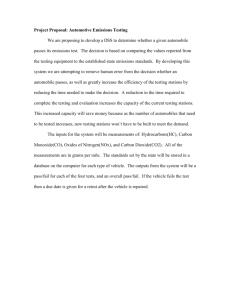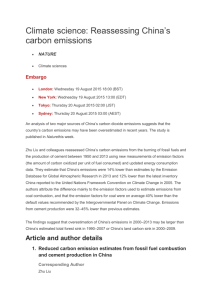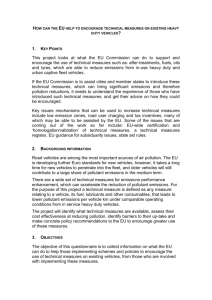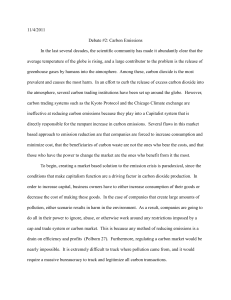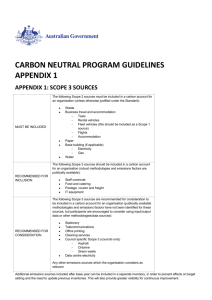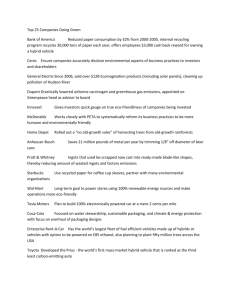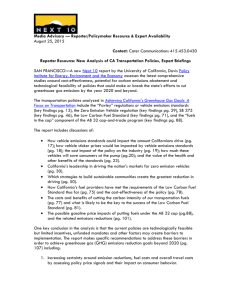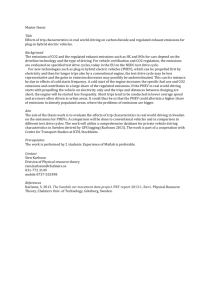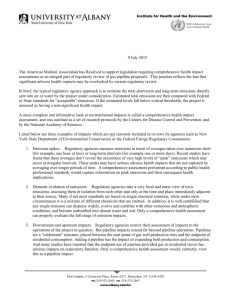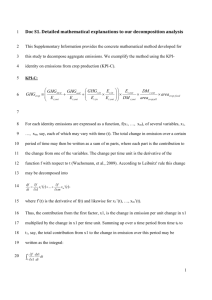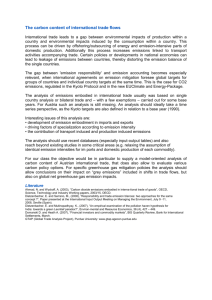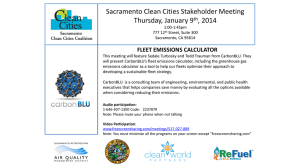Automotive Emissions Review: Regulations & Pollutants
advertisement
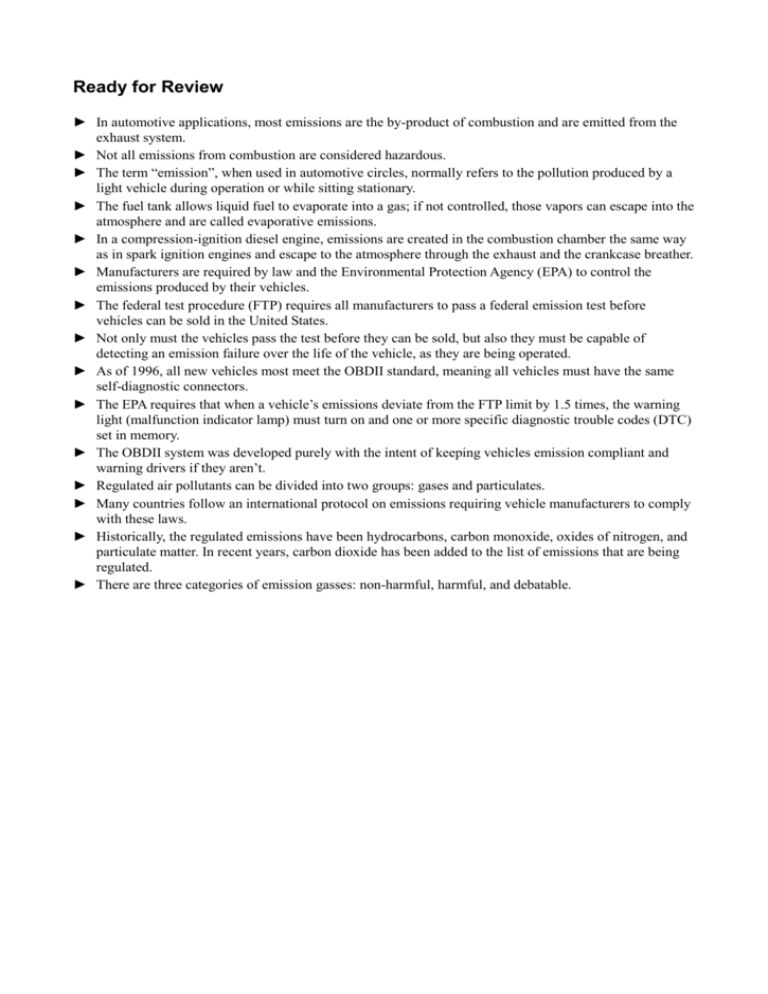
Ready for Review ► In automotive applications, most emissions are the by-product of combustion and are emitted from the exhaust system. ► Not all emissions from combustion are considered hazardous. ► The term “emission”, when used in automotive circles, normally refers to the pollution produced by a light vehicle during operation or while sitting stationary. ► The fuel tank allows liquid fuel to evaporate into a gas; if not controlled, those vapors can escape into the atmosphere and are called evaporative emissions. ► In a compression-ignition diesel engine, emissions are created in the combustion chamber the same way as in spark ignition engines and escape to the atmosphere through the exhaust and the crankcase breather. ► Manufacturers are required by law and the Environmental Protection Agency (EPA) to control the emissions produced by their vehicles. ► The federal test procedure (FTP) requires all manufacturers to pass a federal emission test before vehicles can be sold in the United States. ► Not only must the vehicles pass the test before they can be sold, but also they must be capable of detecting an emission failure over the life of the vehicle, as they are being operated. ► As of 1996, all new vehicles most meet the OBDII standard, meaning all vehicles must have the same self-diagnostic connectors. ► The EPA requires that when a vehicle’s emissions deviate from the FTP limit by 1.5 times, the warning light (malfunction indicator lamp) must turn on and one or more specific diagnostic trouble codes (DTC) set in memory. ► The OBDII system was developed purely with the intent of keeping vehicles emission compliant and warning drivers if they aren’t. ► Regulated air pollutants can be divided into two groups: gases and particulates. ► Many countries follow an international protocol on emissions requiring vehicle manufacturers to comply with these laws. ► Historically, the regulated emissions have been hydrocarbons, carbon monoxide, oxides of nitrogen, and particulate matter. In recent years, carbon dioxide has been added to the list of emissions that are being regulated. ► There are three categories of emission gasses: non-harmful, harmful, and debatable.
